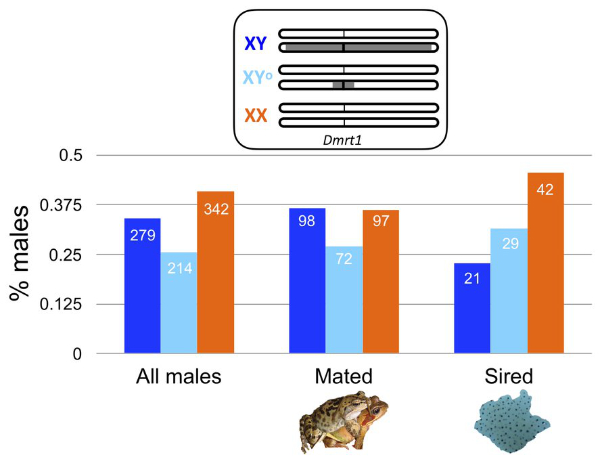New paper published at JEB
23/11/19 16:15 Category: Papers
No effect of sex chromosome differentiation on male phenotype, mating or fathering success



The canonical model of sex‐chromosome evolution assigns a key role to sexually antagonistic (SA) genes on the arrest of recombination and ensuing degeneration of Y chromosomes. This assumption cannot be tested in organisms with highly differentiated sex chromosomes, such as mammals or birds, owing to the lack of polymorphism. Fixation of SA alleles, furthermore, might be the consequence rather than the cause of recombination arrest. Here we focus on a population of common frogs (Rana temporaria) where XY males with genetically differentiated Y chromosomes (non‐recombinant Y haplotypes) coexist with both XY° males with proto‐Y chromosomes (only differentiated from X chromosomes in the immediate vicinity of the candidate sex‐determining locus Dmrt1) and XX males with undifferentiated sex chromosomes (genetically identical to XX females). Our study finds no effect of sex‐chromosome differentiation on male phenotype, mating success or fathering success. Our conclusions rejoin genomic studies that found no differences in gene expression between XY, XY° and XX males. Sexual dimorphism in common frogs might result more from the differential expression of autosomal genes than from sex‐linked SA genes. Among‐male variance in sex‐chromosome differentiation seems better explained by a polymorphism in the penetrance of alleles at the sex locus, resulting in variable levels of sex reversal (and thus of X‐Y recombination in XY females), independent of sex‐linked SA genes.